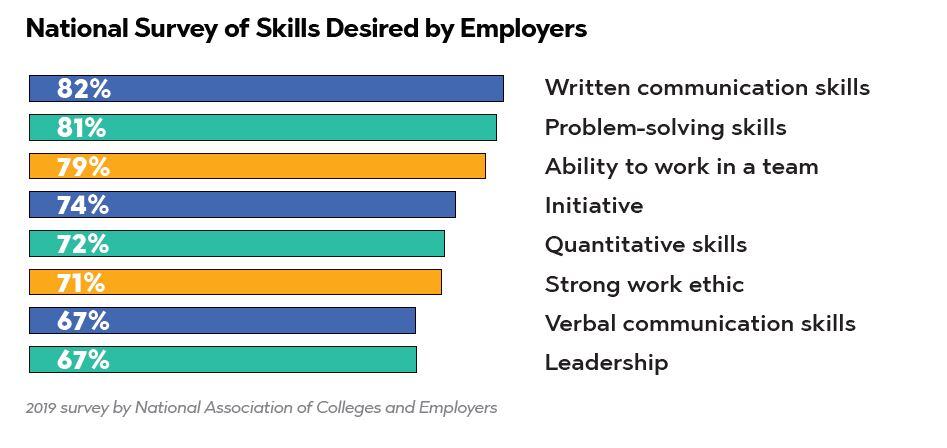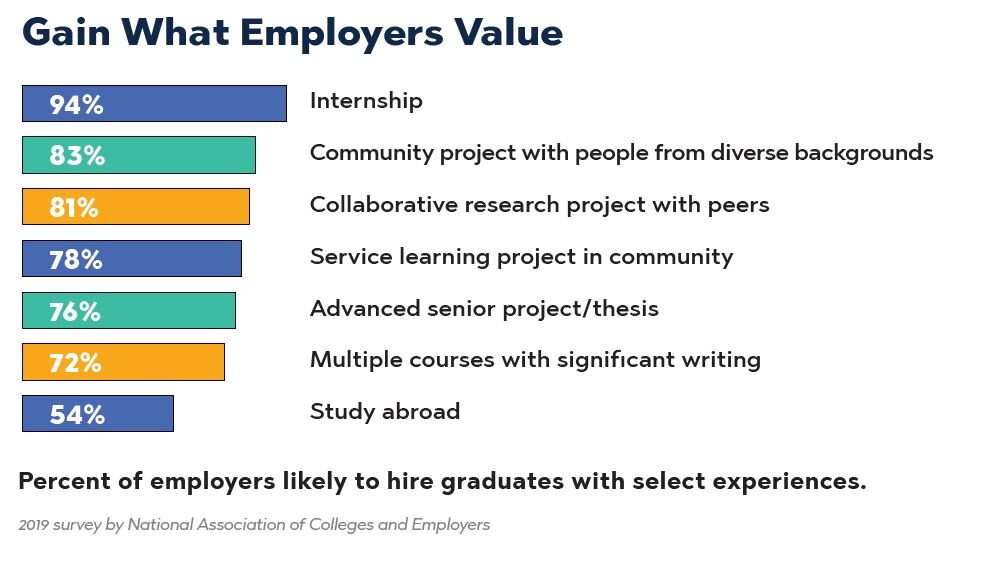What is a liberal arts education?
Our General Education Program is rooted in a liberal arts education. "Liberal arts" describes a set of majors, disciplines, and degree programs most often associated at Wayne State with the College of Liberal Arts and Sciences. But the liberal arts approach to education - learning to read critically, think broadly, and communicate clearly and effectively across the arts & humanities, social sciences, and natural sciences - also incorporates fields found throughout all of our other undergraduate schools and colleges. The skills that students develop through this comprehensive approach to education help them succeed in the classroom and prepare them to tackle some of the world's most complex issues. This approach to education - which emphasizes learning how to cultivate core competencies and think from multiple perspectives - helps students learn how to solve problems, but it also helps students learn to discern which problems to solve and why. Students develop the skills to be lifelong learners and adapt to rapidly changing social, economic, and cultural realities in an increasingly globalized context. We provide this education for all of our students in order to help them thrive during and beyond their time at Wayne State.
Many students come to the General Education Program unfamiliar with these ideas. In a moment when workforce development and job training dominates national conversations, the benefits of this broad-based form of learning seems less concrete or obvious for many people. It is also often easily confused with political labels and affiliations. But, far from representing a particular political orientation, Wayne State's General Education Program encourages students to explore the world through many different approaches and become at least conversant with different methods of interpreting, experiencing, understanding, and analyzing the world around us. The General Education Program provides a powerful opportunity to explore and cultivate curiosity among our students in ways that will continue to enrich their lives long after they have left Wayne State. These courses might help them reflect differently on their own majors and develop a competitive edge and unique insights that lead to innovation in their chosen fields. It also provides students with a unique opportunity to learn and explore new passions that shape their life outside of work.
In speaking with students and parents and in thinking about how to build students schedules that will best support their success within and outside of the classroom, advisors often help provide this context for students. In order to support your work, we've assembled a list of resources that you can use for yourself or share with students. We have also included a series of videos from Wayne State faculty, describing why they think General Education is important. If you have additional resources that you think would be helpful, please share them with us at gened@wayne.edu
Internal Resources
External Resources
Advocacy for Liberal Education, Association of American Colleges and Universities
- "The vision of educational excellence AAC&U works to advance is grounded in equity and inclusion. This vision is presented in full in What Liberal Education Looks Like: What It Is, Who It's For, and Where It Happens. In distilling the principles, practices, and contemporary challenges of liberal education, this signature AAC&U publication clearly describes the learning all students need for success in an uncertain future and for addressing the compelling issues we face as a democracy and as a global communityregardless of where they study, what they major in, or what their career goals are."
The Liberal Arts Matter, Minnesota Private College Council
- "Employers are looking for college graduates to have a wider set of skills and higher levels of learning. A national survey found employers expect graduates to have both broad and major-specific knowledge, along with the ability to apply their learnings in real world settings and develop their research abilities. These are all hallmarks of liberal arts education at our institutions. Employers also frequently cite their need to hire people are well-rounded, curious and good problem solvers all of which are nurtured by a liberal arts education."
Fulfilling the American Dream: Liberal Education and the Future of Work, Association of American Colleges and Universities
- "When hiring, executives and hiring managers place a highpriority on graduates' demonstrated proficiency in skills and knowledge that cut across majors, and hiring managers are closely aligned with executives in the importance that they place on key college learning outcomes. Thecollege learningoutcomes thatbothaudiencesrate as most important include oral communication, critical thinking, ethical judgment, working effectively in teams, working independently, self-motivation, written communication, and real-world application of skills and knowledge."
- "Research shows that 93% of employers agree that a candidate's demonstrated capacity to think critically, communicate clearly, and solve complex problems is more important than their undergraduate major."
Employers Want to See These Attributes on Students' Resumes, National Association of Colleges and Employers

In a 2019 survey, employers noted that they most desired employees that had written communication skills, problem-solving skills, the ability to work in a team, initiative, quantiative skills, strong work ethic, verbal communication skills, and leadership skills. The learning outcomes for Gen Ed courses closely reflect the survey results, and Gen Ed courses are a great way for students to develop core competencies that they can continue to develop throughout their degree program, particularly if they take their Gen Ed courses early in their college career.

Employers also note that they are more likely to hire students with experiences like internships, community projects with people from diverse backgrounds, collaborative research projects with peers, service learning projects in the community, advanced senior project/thesis, multiple courses with significant writing, and study abroad. Gen Ed courses that are strategically chosen can help students pursue or prepare for these experiences inside and outside of the classroom.
Hear more about what we share with students during orientation!